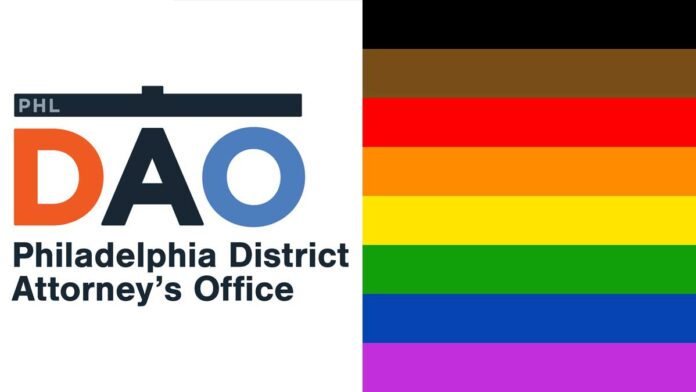As PGN reported, the District Attorney’s LGBTQ+ Advisory Committee, which was announced in March 2021, had its first meeting on December 6. The 18 committee members met at the Philadelphia District Attorney’s Office in Center City. DA Krasner was also in attendance, and members who couldn’t attend in person were able to attend via Zoom.
And that’s all we know. We don’t know what the committee talked about. And despite PGN’s efforts — including a Right-To-Know-Law request that is still being considered by the DA’s office — we don’t even know the names of who is on the committee. The committee is, as of the writing of this editorial, anonymous.
After the committee’s first meeting in December, DA spokesperson Jane Roh emailed PGN a statement regarding the committee members’ anonymity:
“[A]t this time, at the request of several members we are not publicizing the names of people who are serving on this committee, which is inclusive of LGBTQI+ persons who have had prior involvement with a criminal legal system that too frequently punishes targeted and vulnerable people for engaging in survival work and for using illegal substances,” Roh said, in a Dec. 10 email. “The purpose of the committee is to support the LGBTQI+ community’s goals of being treated with the dignity and respect they deserve from all public institutions, including the criminal legal system. We hope to have more to say in the future about the work of the Liaison Committee.”
Perhaps the DA would like to add an addendum, for those of us who don’t quite understand what that Dec. 10 statement is supposed to mean. Is the statement supposed to indicate that certain members of the committee don’t want people to know that they have had “prior involvement with a criminal legal system that too frequently punishes targeted and vulnerable people for engaging in survival work and for using illegal substances?” But even if that is the rationale, what is stopping the other committee members from revealing their involvement? Why is the entire committee anonymous?
Here’s one hypothesis about why the committee is choosing to be anonymous: some members of the committee are afraid of people finding out they are working with a law enforcement agency. They are afraid that some sections of the LGBTQ community will deride them because they are advising the District Attorney. They are afraid that their reputations will suffer a blow among those who are against the prosecutorial system and those who work with it.
Yes, that hypothesis may ultimately turn out to be incorrect, but it is not illogical given the information we know right now. Working with police and law enforcement is an extremely divisive issue in the LGBTQ community. It’s one reason why Philly Pride Presents disbanded and a new Pride organization formed.
Regardless of the reason for anonymity, the DA’s LGBTQ+ Advisory Committee should know better than to think they could or should remain nameless.
Our community used to operate in the shadows. Are we returning to those times when mere association with a community was taboo? Sadly, in this case the taboo community isn’t the LGBTQ community, but the law enforcement community. Are these committee members so afraid of potential backlash over their working with the District Attorney that they will go so far as to hide their very names? What is the rationale behind their decision?
This committee has numerous issues involving law enforcement and the District Attorney’s office that they could help with; they have the ability to prompt positive change. Maybe they could place pressure to finally get the DA to release the dozens of files related to the Nizah Morris case that have been shielded for years. But how are we in the LGBTQ community expected to support them and their work when we don’t even know who they are?
As long as this committee remains anonymous, their work is going to have a cloud over it, no matter what good they accomplish. Hopefully they’ll realize that and come to their senses sooner rather than later.

